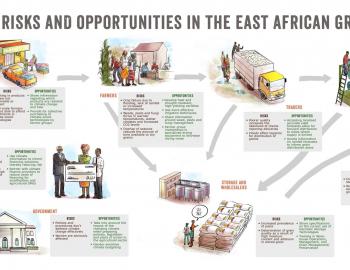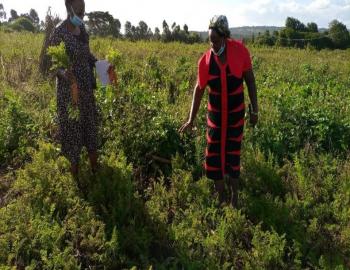Policy Brief: Hermetic storage technologies in Kenya and Uganda
Policy Brief: Hermetic storage technologies in Kenya and Uganda
Climate change exerts a significant burden on food systems in Kenya and Uganda, firstly by increasing production volatility, and secondly by exacerbating post-harvest losses through increased pressure from pests and diseases. Considering the land, labour, water and agro-chemicals used to grow crops, the higher post-harvest losses imply the wasted use of valuable resources.
Like much of sub-Saharan Africa, Uganda and Kenya experience significant post-harvest losses in food value chains. These losses result in wasted production resources such as farm inputs, land and labour, lost food that would otherwise improve food security, and lost income for smallholder farmers, traders and the wider economy. Hermetic storage technologies (HSTs) are vital for reducing the post-harvest losses and mitigating climate risks and impact on livelihoods.
This policy brief explores the relationship between climate change and post-harvest losses and assesses the use of post-harvest technologies in general to mitigate climate risks, with a focus on HSTs. Additionally this brief discusses the challenges facing the adoption of HSTs and puts forward several recommendations for successful uptake of these products.
Photo: Coffee farmers in Uganda, courtesy of Bread for the World.



